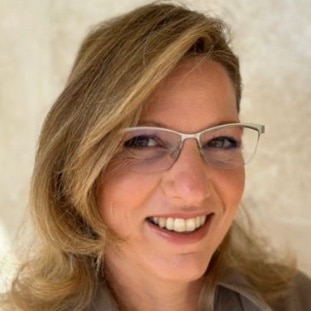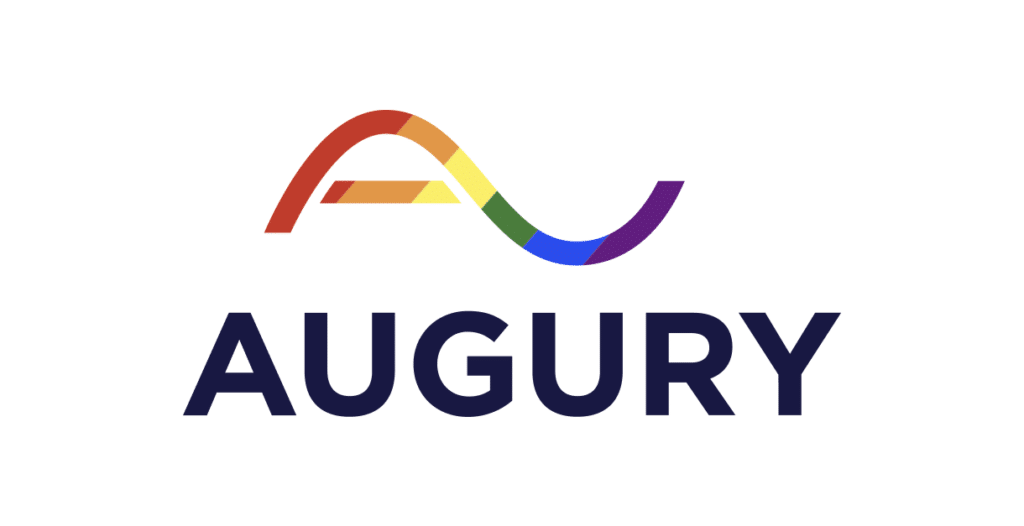We live in complex and unpredictable times – with no real clarity on the horizon. Whether it’s a tornado in Kentucky or war breaking out in Israel, international companies need to deal with change and the unexpected. And being resilient and flexible is only one part of this equation. You also need to answer the question: How are you going to treat the people on the ground – your employees – when they are hit by calamity?

Michal Gutelzon is the Director of People Operations at Augury. While based in California, her approach to HR is very hands-on. If she hears an employee’s home is destroyed by a tornado, she’s already arranging the delivery of a power generator. If an employee is called up as an army reservist, she’s messaging regularly with their family – if they are open for it – until she’s sure all their needs, both material and emotional, are met.
“As an HR leader in a global company, facing natural disasters and various crises impacting our team members has become an increasingly common challenge,” she writes in her article ‘Navigating Through Storms: The Evolving Role of People Teams in Crisis’. “Over the years, many have asked me about the impact of such situations on my role and how we navigate through them. While there’s no right or wrong answer, I believe that these are the moments that demand that HR teams go above and beyond, demonstrating not only resiliency but also genuine caring.”
Michal confronts one question directly: “Does our role extend beyond employees to include their spouses, parents in some cases?” Her answer is a resounding “YES!” And in a second article, ‘Continuing the People’s Team’s Evolution: Navigating Post-Duty Reintegration’, she writes about the concrete steps Augury’s People Team follows when dealing on with this especially-challenging version of extended leave.
And with many more ideas for articles brewing, we decided to sit down with Michal to talk about how she formed her vision around her fully immersive approach to HR.
Let’s start with the basics. How do you explain your job to those who don’t even know what HR stands for?
There are several aspects. On one hand, we aim to provide a great experience for every employee through their whole life cycle at a company: from recruitment, onboarding, growth, and right through to the end of employment. And remember, you don’t have to separate as enemies. In fact, you should separate as good friends – because perhaps our paths will cross again! And certainly, there’s also a joy when someone flourishes at a new company thanks to what they learned from us.
And through this life cycle, many things can happen: personal growth, promotion and/or lateral movements, personal challenges, health issues, personal milestones like weddings and births, and more. Then there’s also the changes that may occur in the life cycle of a company, such as in organization or leadership. So, you want employees to always feel that we’re trying our best as someone who cares and we are here to answer any questions and provide any support that is needed. And they should feel comfortable to ask anything at any time.
You really have to communicate with everyone that we can help them. Some people are more open to this than others. Some people who worked at big corporations, for example, are not used to keeping HR close. They just think you’re there for extreme business situations such as performance issues or misconduct, etcetera. And yes, we’re there for that – but in a sense, that’s also too late.
Looking back to your professional life before Augury, what are you most proud of?
I had a completely different career life and I lived in Israel. I was a lawyer practicing environmental law, which I really, really enjoyed. We dealt with class actions, criminal and civil cases. We also supported startups trying to navigate this whole new niche: How do you contribute to the environment? How can you do some good? And there were no regulations or just recently enacted ones, so it was all new. It was really exciting.
And then my life flipped a bit when I relocated to the US with my family – first to New York and then to Silicon Valley. And life ends up offering you new opportunities.
This seems like a remarkable pivot: from environmental lawyer to HR professional…
Well I was always there for people whether as a shoulder to cry on or just as support when needed. I also naturally connected people to other people or opportunities. And I started to build up connections, for instance when I was part of a nonprofit that organized events in Silicon Valley for entrepreneurs, product managers, engineers and business development.
Then opportunities started to flow. First at Folloze, and then later I was approached by Fyber for a job I always suspected no one else wanted. Fyber was in a chaotic place. It was a whole crazy story of merging three companies together after a change in management. When I joined, at least one person was resigning every day. And while it was crazy, I do tend to take on the difficult stuff. When you have great leadership onboard who is fully invested in succeeding and making the impossible possible, magic happens. We changed the culture, we rebuilt the US teams and within a few years we got acquired.
And now, 2.5 years after joining Augury, what are you most proud of looking back?
I think it’s about how we were able to manage these and other difficult situations. It’s more than just carving out some money. It all needs to be tailored to the situation. How do we support our people when they struggle? And how can we do it the fastest way possible – because the first hours are often the most crucial. And this is what the employee will remember: the first hours and how we responded. Were we slow? Did we really care? Did we make the effort? Was it tailored to their needs? They will remember this initial response and they will remember how things end.
Was there an event in your life, or a role model, that inspired you into going this extra mile? This isn’t all standard HR department stuff…
Not really. It’s me and it just feels natural. My husband is the same and to be honest way more than I am. Whenever there is a need, he will be one of the first to offer help and support by actions and organizing. For me, my employees will come first, sometimes while sacrificing my family life and myself. It’s just who I am.
Not everyone is open to being helped. Have your good intentions ever been blocked?
Some people do not want to share their personal experiences and pain. You sometimes have to ask them personal questions and they don’t know what you will do with this information. You need to build up trust until they know it’s a safe place. Once the trust is there and maintained, people will feel safe to come to you.
What would make your job easier as a hands-on HR leader?
I wish everyone would believe HR is not your enemy [laughs]. It is a tough position: between the company and the employees. And each side has its particular needs – and these need to fit into the principles of a company’s culture. But we do our best.
And if I want to schedule a one-on-one with you, don’t be scared. People have this intuitive fear of HR and fear that if they see on their calendars a meeting with us than something must have happened. But the truth is that my colleagues and myself, we simply care and all we want is to see if there’s anything we can do for you to help and improve the current situation. We want to be close to the employees so we can really understand what’s going on and improve – in the name of continuous improvement.
To read more of Michal’s leadership takes, connect with her on LinkedIn.
Or go directly to her articles:
‘Navigating Through Storms: The Evolving Role of People Teams in Crisis’
‘Continuing the People’s Team’s Evolution: Navigating Post-Duty Reintegration’







